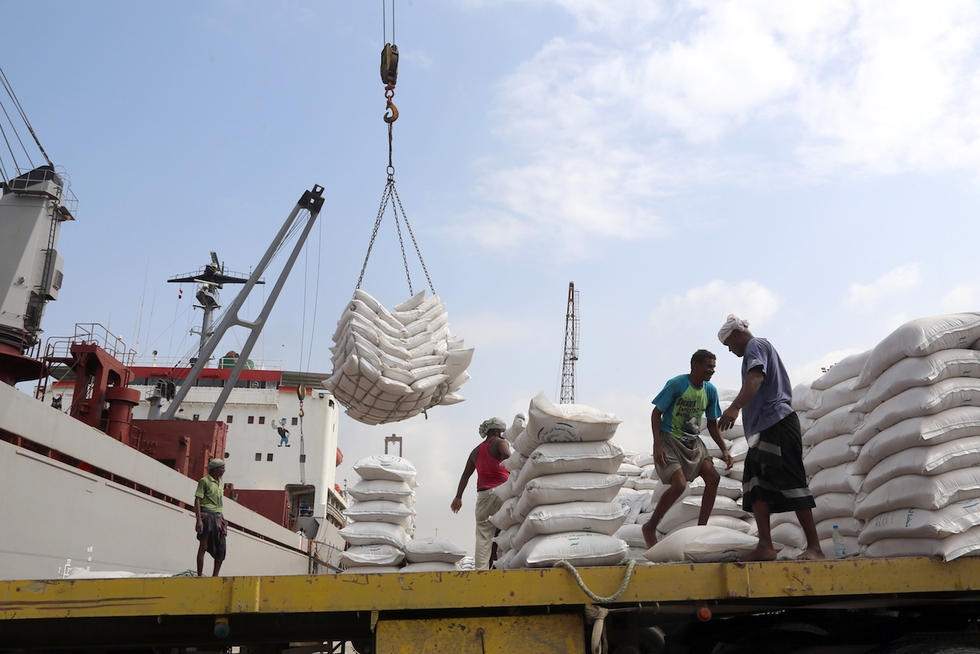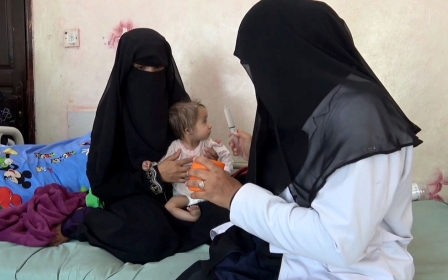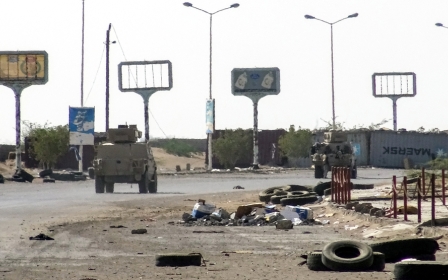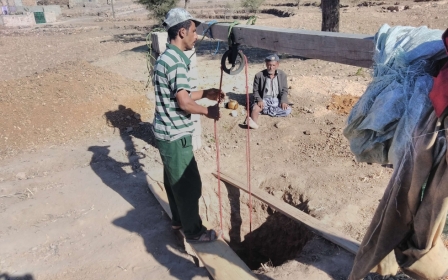Yemen peace talks set for early next month in Sweden, says Pentagon chief

The United States defence secretary has announced that peace talks to end the devastating conflict in Yemen will be held in early December.
Jim Mattis said on Wednesday that negotiations between Yemen's Houthi rebels and the United Nations-recognised government of ousted President Abd Rabbuh Mansour Hadi will take place in Sweden "very early in December".
Mattis said Saudi Arabia and the United Arab Emirates, which launched a military offensive in Yemen in 2015 in support of Hadi, "are fully on board" with the peace talks.
"Up in Sweden, we'll see both the Houthi rebel side and the UN-recognised government, President Hadi's government," Mattis said.
The announcement comes as UN envoy Martin Griffiths was in the Yemeni capital, Sanaa, in an attempt to stop the fighting in the port city of Hodeidah.
Griffiths was also expected to speak with rebel leaders and push them to agree to attend the peace talks in Sweden.
The Houthis didn't show up to peace talks in Switzerland in September, leading to the collapse of that effort to end the fighting. Members of the group say they want stronger security assurances from the international community that they will be given safe passage.
UN push to end fighting in Hodeidah
Saudi Arabia launched a military offensive in Yemen in 2015 after the Houthis overran the capital and ousted Hadi's government. The country has been pushed into a devastating humanitarian crisis as a result of the three-year war, and diseases and malnutrition are widespread.
The UN recently launched a heightened push to end the fighting between Yemen's warring parties - and reach a ceasefire in Hodeidah, in particular. The city is a critical gateway for humanitarian aid entering the country.
This week, UN agencies said as many as 14 million Yemenis are at risk of starvation if the fighting in Hodeidah does not end.
The city saw fierce clashes on Monday between the Saudi-led coalition and Houthi fighters. The coalition carried out at least 10 air strikes, while Houthi fighters fired artillery, according to local residents.
Today, we don’t know how people would escape if they were to be trapped inside Hodeidah between warring parties and how they would access basic services if the situation worsens
- Caroline Seguin, Doctors Without Borders
Clashes were also reported late on Tuesday, as residents in the east of the city told AFP by telephone they could hear fighting and reported shrapnel falling in residential neighbourhoods.
On Wednesday, Mattis said the Saudis and Emiratis have ceased their offensive around the city and the frontlines have not changed in 72 hours.
Meanwhile, Doctors Without Borders (MSF) said it had treated 510 wounded people at its facilities in Hodeidah between 1-15 November, including at least 31 women and 33 children.
The injuries were about evenly split between gunshot wounds and harm caused by bomb blasts and shrapnel, the group said.
“Our staff can hear explosions and shootings extremely close by occurring every day around Al-Salakhana hospital,” said Caroline Seguin, MSF's operations manager for Yemen.
“Ground fighting between military forces are getting closer to this hospital, raising concerns about patient and staff safety.”
At least 150 people were killed in 24 hours of clashes in Hodeidah earlier this month, according to medics and military sources.
Seguin said that if the city is besieged, civilians could be caught in the crossfire and become trapped without access to a hospital.
“Today, we don’t know how people would escape if they were to be trapped inside Hodeidah between warring parties, and how they would access basic services if the situation worsens,” she said.
Middle East Eye propose une couverture et une analyse indépendantes et incomparables du Moyen-Orient, de l’Afrique du Nord et d’autres régions du monde. Pour en savoir plus sur la reprise de ce contenu et les frais qui s’appliquent, veuillez remplir ce formulaire [en anglais]. Pour en savoir plus sur MEE, cliquez ici [en anglais].




